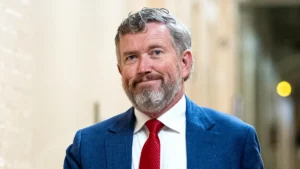Justin Trudeau: a progressive leader on the global stage

Primer ministro de Canadá
Justin Trudeau was born in Ottawa, Canada, into a family with deep political roots. His father, Pierre Trudeau, served twice as prime minister of Canada and is considered one of the country’s most influential leaders. His mother, Margaret Trudeau, was also involved in politics and activism.
Education and professional experience
Trudeau earned a Bachelor of Arts in English literature from McGill University and a Bachelor of Education from the University of British Columbia. Before entering politics, he worked as a French teacher, a role that allowed him to connect with the educational community and understand the needs of Canadian youth.
Entry into politics
In 2008, Trudeau was elected as a member of Parliament for the Papineau district in Montreal as a member of the Liberal Party of Canada. Throughout his political career, he has held various positions, including youth and multiculturalism critic, before being elected leader of the Liberal Party in 2013.
Achievements of Justin Trudeau
Legalization of marijuana
One of the most notable milestones of Justin Trudeau’s tenure as prime minister of Canada was the legalization of marijuana in October 2018. This measure marked a fundamental shift in Canadian drug policy and had significant repercussions. It helped reduce the black market by providing consumers with a regulated and safe source for cannabis, improving product quality and safety, and reducing drug-related crime. It also generated government revenue used to fund public health initiatives and supported medical research into cannabis use.
Inclusion and diversity policies
Trudeau has made inclusion and diversity a cornerstone of his leadership. He appointed a gender-balanced cabinet, with an equal number of men and women ministers — a major step toward gender equality in Canadian politics. He has been a passionate advocate for LGBTQ+ rights, issuing a formal government apology in 2017 to LGBTQ+ individuals who had faced discrimination. Trudeau has also worked closely with Indigenous communities, dedicating funding to improve housing, education, and healthcare access while addressing issues of justice and reconciliation.
Humanitarian immigration policy
Under Trudeau’s leadership, Canada has gained global recognition for its humanitarian immigration policy. His government welcomed thousands of refugees, including many fleeing the Syrian conflict. Trudeau promoted family reunification and encouraged private sponsorship to support refugee integration. His inclusive approach strengthened Canada’s reputation as a compassionate and open nation.
Controversies and challenges
Aga Khan island trip scandal
In 2017, Trudeau faced controversy over a vacation to the private island of the Aga Khan, a spiritual leader and family friend. Canada’s ethics commissioner concluded the trip violated federal ethics rules, leading to a public apology from Trudeau.
Blackface controversy
During the 2019 election campaign, photos emerged of Trudeau in blackface from earlier in his life. Although he publicly apologized and admitted the incidents were racist, the controversy sparked national conversations about racism and privilege in Canada.
Indigenous protests
Trudeau’s government has faced strong opposition from Indigenous communities over issues like pipeline expansions and land rights. These tensions highlighted the challenge of balancing environmental protection with economic development, testing Trudeau’s commitment to reconciliation.
Legacy
Justin Trudeau remains a key figure in both Canadian and global politics. His tenure is marked by progressive reforms, including marijuana legalization, gender equality, and humanitarian immigration. Despite the controversies, his leadership reflects a commitment to inclusion, social justice, and a modern vision for Canada’s future.






